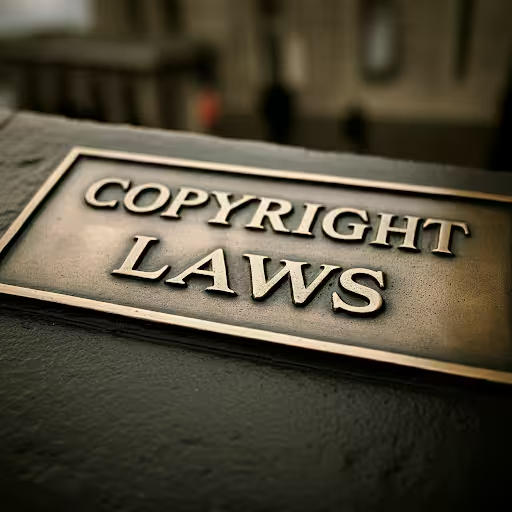All the bloggers and content creators should be aware of their rights. Copyright Laws in India is a primary resource to know about the Copyright laws in India and Exceptions
I’m passionate about sharing knowledge and ideas on my blog, and I want to ensure that everyone who reads my content does so responsibly. To that end, I’d like to take a moment to discuss the topic of copyright in India.
What is Copyright?
In India, copyright law protects original literary, dramatic, musical, and artistic works, as well as cinematographic films and sound recordings. This means that the creator of a work has the exclusive right to reproduce, distribute, perform, and adapt their work.
Copyright and this Blog
As a blogger, it’s important to be aware of copyright law to avoid any legal issues. Here are some key points to remember:
- Original Content: The best way to avoid copyright infringement is to create original content. This means writing your own articles, taking your own photos, and creating your own videos.
- Fair Use: In certain circumstances, you may be able to use copyrighted material without permission under the doctrine of fair use. This typically applies to situations where the use is for educational, research, or criticism purposes.
- Attribution: If you do use copyrighted material, it’s important to attribute the original source. This can be done by citing the author’s name, the title of the work, and the URL where the work can be found.
My Commitment to Copyright Compliance
I want to emphasize that I take copyright seriously. All of the content on my blog is either original or used with permission or ensured that copyright laws are not breached (Refer Copyright infringement exceptions ahead). If you find any copyrighted material on my blog that has not been properly attributed, please contact me immediately and I will address the issue.
Using Content from My Blog
I encourage you to share my blog posts with your friends and followers, but please be sure to attribute the source. You may also use short excerpts from my blog posts, as long as you provide a link back to the original article.
Additional Resources
For more information about copyright law in India, please refer to the following resources:
Thank you for reading!
I hope this information is helpful. If you have any questions, please feel free to leave a comment below.
Exceptions to CopyRight Infringements
The Indian Copyright Act, 1957, under Section 52, provides certain exceptions where copyrighted material can be used without the owner’s permission. Here are some of the key exceptions:
1. Fair Dealing
This exception allows for limited use of copyrighted material without permission for specific purposes:
- Private or personal use, including research: This covers making copies for personal study or research, but not for commercial purposes.
- Criticism or review: You can use excerpts of a work to critique or review it, as long as it’s done fairly and for legitimate purposes.
- Reporting current events: This allows the use of copyrighted material to report news in any form of media.
2. Educational Purposes
- Reproduction by a teacher or pupil: A teacher or student can reproduce a work in the course of instruction, as long as it’s not done for commercial purposes and the source is acknowledged.
- Performance in an educational institution: Copyright works can be performed in the course of educational activities, provided it’s not for commercial purposes.
3. Libraries and Archives
- Reproduction for preservation: Libraries and archives can make copies of works for preservation, if the original is damaged or lost.
- Supply of copies: Libraries can supply copies of works to other libraries or individuals for research or private study.
4. Public Administration
- Reproduction for judicial proceedings: Copyright works can be reproduced for use in court cases or legal proceedings.
- Acts done by the government: Certain acts done by the government, like publishing acts and regulations, are exempt from copyright.
5. Other Exceptions
- Broadcast of a work already broadcast: A broadcast reproduction of a previously broadcast work is allowed in certain cases.
- Ephemeral recordings: Temporary recordings made for broadcasting purposes are exempt.
- Reproduction for the visually impaired: Works can be reproduced in formats accessible to visually impaired individuals.
Important Considerations:
- Attribution: Even when using copyrighted material under an exception, it’s generally good practice to attribute the source.
- Commercial Use: Most exceptions don’t apply if the use is for commercial purposes.
- Amount and Substantiality: The extent of the use is important. Using a small portion of a work is more likely to fall under an exception than using a large or significant portion.
It’s crucial to remember that these exceptions are subject to interpretation and can be complex. If you’re unsure whether your use of copyrighted material falls under an exception, it’s best to seek legal advice.




